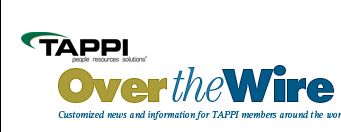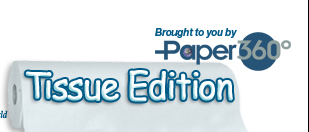K-C to Transition 50% of Tissue Wood Fiber to Alternative Sources by 2025
 Print this article | Send to Colleague Print this article | Send to Colleague
Kimberly-Clark Corp., Dallas, Texas, USA, has announced plans to significantly reduce its forest fiber footprint, including a goal to transition at least 50% of wood fiber sourced from natural forests to alternate fiber sources by 2025. This new initiative will help protect biodiversity and reduce the impacts of fiber that the company uses while ensuring the fiber is sourced in an environmentally and socially responsible way. Equally important, it will also help insulate the company from continuing volatile price fluctuations in the world fiber market. The announcement was made in conjunction with the Rio+20 United Nations Conference on Sustainable Development, held in Rio de Janeiro, Brazil.
"We continue to strongly support sustainable forestry where those materials are needed, but at the same time we are aggressively exploring high-potential alternatives to the traditional fiber sources used in our industry, while maintaining the high quality standards our customers and consumers have come to expect," says Suhas Apte, VP, Global Sustainability for K-C. "In the long run, we hope that one day all of our fiber needs will be met from sources that collectively have maximum land use efficiencies while minimizing impact on people and our planet."
In 2011, the company used nearly 750,000 metric tons of primary wood fiber sourced from natural forests. With this new commitment, K-C pledges to cut the amount sourced from natural forests in half by 2025, an amount equivalent to the fiber used to manufacture more than 3.5 billion rolls of toilet paper.
The initiative focuses on exploration of alternative sources of fiber for K-C’s products, such as plants that make efficient and sustainable use of land and resources with the desired intent not to displace food crops or lead to loss of natural forests. Examples include:
- Andrex Eco bath tissue, launched in the U.K., contains 10% bamboo and 90% recycled fiber
- K-C Professional is currently test marketing tissue products that contain 20% bamboo in North America
- K-C also has recently signed a development agreement with Booshoot, a biotech firm in Washington State and the global leader in bamboo forestry. The agreement will enable further exploration into the supply chain to manufacture K-C tissue products containing bamboo using Booshoot's unique bamboo propagation technology
- Rapidly growing tree plantation sourced fiber.
Examples of alternative sources also includes "waste" fibers currently discarded or considered of low value such as agricultural crop remnants that remain in the field after harvesting. For example:
- K-C Professional is currently test marketing tissue products made in part with alternative fibers including wheat straw in North America
- K-C also is exploring alternative processing technologies and supply chain solutions for using such waste fibers.
To ensure it understands and responsibly manages the impacts of its decisions, K-C has commissioned a Life Cycle Analysis (LCA) and broader sustainability risk assessment with the Georgia Institute of Technology.
More information on K-C's sustainability initiatives is available online.
   
|

